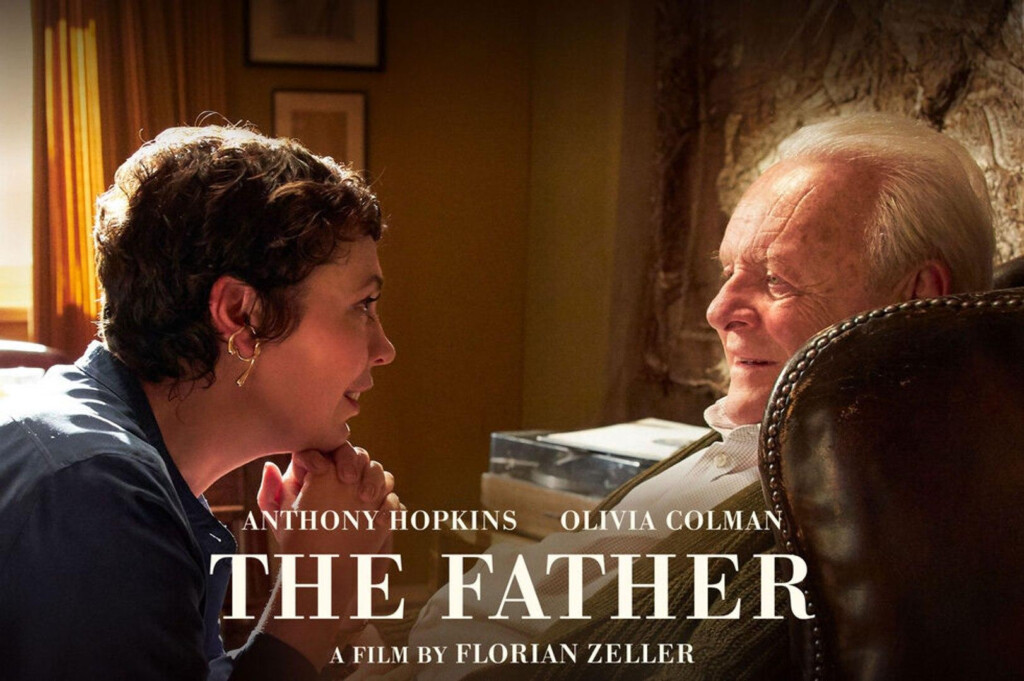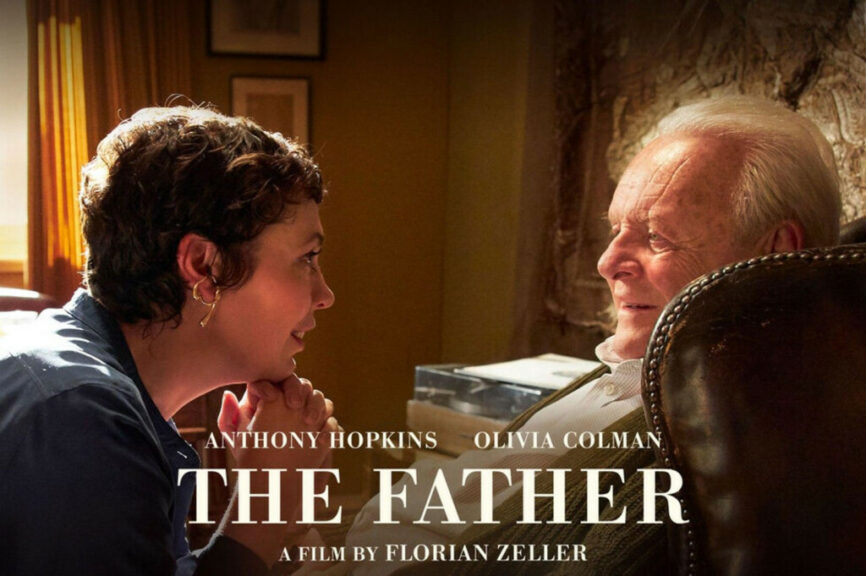
The Father the first film directed by Florian Zeller, has a good reputation. According to the census made on the IMDb website, this film has received 133 nominations, 26 of which have resulted in awards. Among the awards received, we particularly note the Oscar for Best Actor in a Leading Role for Anthony Hopkins and Best Adaptation for the director and his co-writer Christopher Hampton. These two Oscars are the exact reflection of the two BAFTA Awards obtained two weeks earlier. This film’s track record among the festivals and other award ceremonies of the 7th art is extensive. It is all the more impressive that it celebrates the first film direction of a man of the theater. And, as there is never smoke without fire, it is perhaps given to us to see through The father the birth of a filmmaker with a promising future.
The Father tells the inner trajectory of an 81 year old man, Anthony, whose reality is gradually breaking down before our eyes. But it is also the story of Anne, his daughter, who tries to accompany him in a labyrinth of unanswered questions.
For this first film dedicated to the big screen, Florian Zeller chose to adapt the play of the same name, of which he is the author. He hired the services of screenwriter Christopher Hampton to bring his own writings to the screen. The neo-director does not venture alone on a field that is not totally unknown to him. The spectators can legitimately expect from this adaptation the restitution of a mastered narrative framework. Unfortunately, this is where we will focus our main complaint later in this article.
Let’s first credit the new director with having avoided a defect often found in early cinematographic productions: narrative and/or technical overload. A characteristic that relegates many first films to the rank of demonstrative films of know-how. In The Father, Zeller uses a clean but lackluster, academic, formatted mise en scène. The film does not contain any strong directorial choices. It is thus devoid of any imprint that would allow us to identify the touch of an author in the making, the one of a filmmaker whose future achievements we would not like to have to analyze.
The title of the film pushes the spectator to focus his attention on the title character played by Anthony Hopkins. The indication, if not false, is nevertheless truncated and misleading. Of course, the octogenarian is the central character, but the proposed story has a double look. There is therefore the predominant one of the father but also that of his daughter played by Olivia Colman. Of course, the synopsis makes no secret of this double point of view, but the writer-director would have gained in narrative efficiency by borrowing the single viewpoint of the title character. In fact, the double point of view is problematic because The Father is devoid of any marker that would allow us to identify without ambiguity which point of view is being recounted by the sequence being viewed. For the viewer, the impression of confusion is palpable at every moment. But perhaps this was the intended purpose? This film would then be a kind of mirror effect of the confusion of the main character. If this was Zeller‘s ambition, the contract is fulfilled to a very large extent.
The confusion that inhabits the film is also born from the sequence of sequences that compose it. The director puts on the screen scenes sometimes taken from reality, sometimes recounting invented memories (by a mind suffering from Alzheimer’s disease!), sometimes of dementia to weigh down an already unsophisticated story. Knowing that nothing distinguishes these different categories of sequences, the spectator is hard pressed to distinguish the real from the fake. As the director multiplies the deceptions of facts and places through the disorganization and/or the absence of chronological, relational and identity reference points, the false takes precedence over the true. The father sets itself up as a model of… overhang.
Unsurprisingly, the incoherent and clumsy sequence of repetitive and contradictory scenes forms no narrative thread. One struggles even to distinguish in this great confusion an ersatz narration. What about, for example, the progression of an Alzheimer’s disease that is never named? The epilogue finally arrives and by surprise because the absence of progressiveness in the narrative makes its approach unsuspecting unless one takes a look at the dial of one’s watch. The epilogue comes as a surprise because it is so predictable. The surprise lies in the composition of two epilogues, each one competing with the other in the category of heavily supported emotional charge.
Finally, The Father is also weighed down by the multiplication of characters whose absence or presence would be explained if an answer were given to the octogenarian’s questions. But the expected answers are systematically evaded. Here again, the process is questionable. The relevance of the questions asked leaves little doubt as to the octogenarian’s ability to understand the answers that should have been provided. What justifies the fact that these answers were not formulated? A mystery.
Many critics see and will see in the process implemented a clever narration (with a lot of « distilled » information… rare), even malignant. It is neither one nor the other. In our eyes, Zeller constructs a narrative that is certainly tricky and probably dishonest. The « labyrinth of unanswered questions » advanced by the synopsis finds no justification. It is the result of a scriptwriting facility that the two co-writers use and abuse. We must warn our readers here about the risk of feeling taken hostage by the narrative framework that has been implemented. For our part, we remain on our questions, also unanswered, about the finality of this film. In the end, our verdict on The Father is far from the many praises given to this first film. The big screen adaptation of the eponymous play seems too confused and insufficiently narrative. Of the awards obtained and quoted in the preamble of this article, we will retain more readily those that praise Hopkins‘ remarkable performance than those that praise the quality of the adaptation. The Father demonstrates that adapting a play to film is not an easy task. In 2015, Philippe Le Guay proposed a first adaptation of the play The father and employed Jean Rochefort to play the title character. The French actor signed his final role. Although not without flaws, the film directed and titled Florida benefits from a better accuracy of purpose and a more delicate narrative, more progressive and less tear-jerker than that which animates The father, the first film directed by Zeller.

